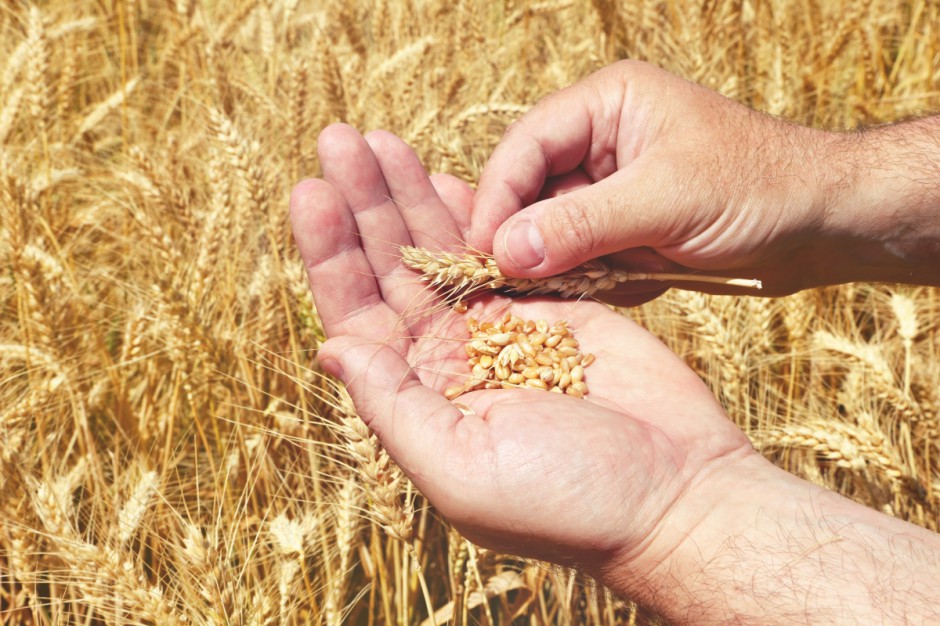Great Britain left the structures of the European Union. Has anything changed about importing agricultural vegetable seeds from this country? No.
According to the Governmental Plant and Seed Inspection Service, by European Parliament Resolution and Council of the European Union 537/2021 of 24 March 2021 amending Council Resolution 2003/17 / EC, the European Commission recognized the equivalence of inspections carried out in the United Kingdom (Great Britain) Field seed crops: Beets, forage plants, grains, oil plants, and fiber, as well as the equivalent seed material for these crops, produced in the United Kingdom (Great Britain) and officially certified by the authorities of that country.
Seeds from third world countries
– This means that the British seed from the above mentioned arable crops were found to be equivalent to similar seeds collected, produced and controlled in the European Union – PIORiN reports.
The decision went into effect on the day of its publication in the Official Journal of the European Union, that is, on March 29, 2021.
What are the requirements for importing seeds from third world countries?
1. Legal basis: Articles 119 and 120 of the Law of November 9, 2012 regarding seed production (Law Gazette 2021, Article 129):
1) Only authorized seeds can be imported from third countries;
2) The seed dealer, within 3 days from the date of customs clearance, informs the competent county inspector of the place of residence or the registered office of the merchant, or the place of business, if it is different from the place of residence of the merchant – if the merchant is a natural person running a business, about the quantity and type Imported seeds, and provides documentation on the production and quality of this substance;
3) The documents required are in particular: “OECD designation”, “OECD certification” and “ISTA certification” (orange) or “AOSA certification”.
2. Requirements for importing seed material:
Only seed material is allowed to be imported (Article 104 (1) (15) of the aforementioned law):
1) Items listed on the National Registry or Community Catalogs (CCA, CCV);
2) Manufactured in a third country with an evaluation system equivalent to that in force in the European Union, in accordance with Council Decision 2003/17 / EC of December 16, 2002 on the equivalence of field inspections applied in third countries in arable crops and on the equivalence of seeds produced in third countries , In particular according to Appendix 1 (Laws Gazette L 8 of January 14, 2003, pg. 10 as amended)
List of countries with import equivalency for seeds
Here is a list of third countries with equivalent plant groups currently as of April 21, 2021 (based on the aforementioned council decision, Source: PIORiN):
Argentina – forage plants, grains, oils and fibers,
– Australia – forage plants, grains, oil and fibers,
– Brazil – forage and cereal plants,
Canada – forage plants, grains, oil and fibers,
Chile – beetroot plants, forage, grains, oil and fiber,
– Israel – forage plants, grains, oil and fibers,
Morocco – forage plants, grains, oil and fibers,
Moldova – vegetable plants, grains, oil and fibers,
New Zealand – beet, fodder, grains, oil and fiber plants,
Serbia – beet, fodder, grains, oil and fiber plants,
Turkey – beetroot plants, fodder, grains, oil and fiber,
– Ukraine – cereal plants,
– USA – beetroot plants, forage, grains, oil and fiber,
Uruguay – forage plants, grains, oil and fibers,
South Africa – Forage plants, oils, fibers and grains – only for Zea mays and Sorghum spp. ,
– United Kingdom (Great Britain) – beet plants, forage, grains, oil and fiber.
Liked the article? Involved!

“Proud creator. Amateur music junkie. Tv scholar. Web fan. Lifelong alcohol lover. Falls down a lot. Hardcore thinker.”







